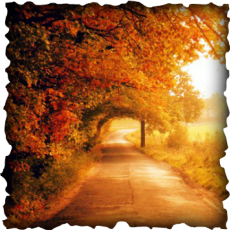
Email: reecejordan98@hotmail.co.uk
Total Article : 168
About Me:18-year-old sixth form student, studying English Literature, History and Government and Politics. My articles will broadly cover topics from the current affairs of politics to reviews of books and albums, as well as adding my own creative pieces, whether it be short fiction or general opinion.

The beginning stanza portrays autumn almost as spring would be depicted: it shows autumn giving abundance of life. It is named as the ‘season of mists and mellow fruitfulness’ and ‘fill all fruit with ripeness to the core’. However, this giving of life, by the last stanza, regresses. Life is contrasted with ‘the soft-dying day’, while ‘barred clouds bloom’. The lexical choice of ‘barred’ suggests that the clouds are unwanted (an intimation of winter coming) and that these are ‘bloom[ing]’ has a sinister undertone, in that the new life given is that which is unwanted. However, as this is an ode (and therefore seeking to celebrate and revere its subject), Keats may have been trying to illustrate how, even in the ‘soft-dying days’ of autumn, it is still a source of life. In so doing, Keats forces us to question our own conceptions of what the seasons are, and perhaps, as his life at the time of writing was tinged with impending death, forces us to see life and what the world can give amongst death.
Alternatively, Wordworth’s use of nature can be seen to poignantly show man’s own need for comfort in a concept of a joyful life in nature. As aforementioned, the speaker in ‘Lines’ describes the movements of nature within a semantic field of joy. However, these joyous actions are ones that stem from the speaker’s ‘faith’ and from what they ‘seem’ to display. The joyous actions are thus projections from man. This is epitomised in the line, ‘I must think, do all I can, /that there was pleasure there’. The modal verb ‘must’ suggests desperation and invites the question as to why the speaker needs to somewhat anthropomorphically project joy onto nature. Wordsworth could be suggesting that man has to comfort himself with the notion that there is joy in naturally being because our world of rationale, wherein ‘pleasant thoughts’ can only bring ‘sad thoughts’ is unsatisfying. This is elaborated further in use of anaphora of ‘If this belief from heaven be sent, / If such be Nature’s holy plan,’ The repetition of ‘if’ places the ‘reason to lament / what man has made of man’ in absolute uncertainty. Wordsworth could thus be suggesting that we can only hope that there is joy in nature as means that man’s deteriorated relationship with it is not only redeemable, but worthwhile. This could be seen also as a response to a life in the industrial revolution, that people ‘must think, do all they can’ that there is a redeemable happiness in nature because of the insular life industry has created. In so doing, the poem’s uncertainty of natural existence displays poignancy in that we as humans may never achieve true joy, even if we were to return to our natural state of being.
Like ‘Lines’, ‘Autumn’ can take on a completely different interpretation in light of Keats’ biographical details. We know that Keats, during his young age of 25, was dying of tuberculosis.
Image Credits: http://romanticlitjohnkeats.weebly.com

0 Comment:
Be the first one to comment on this article.